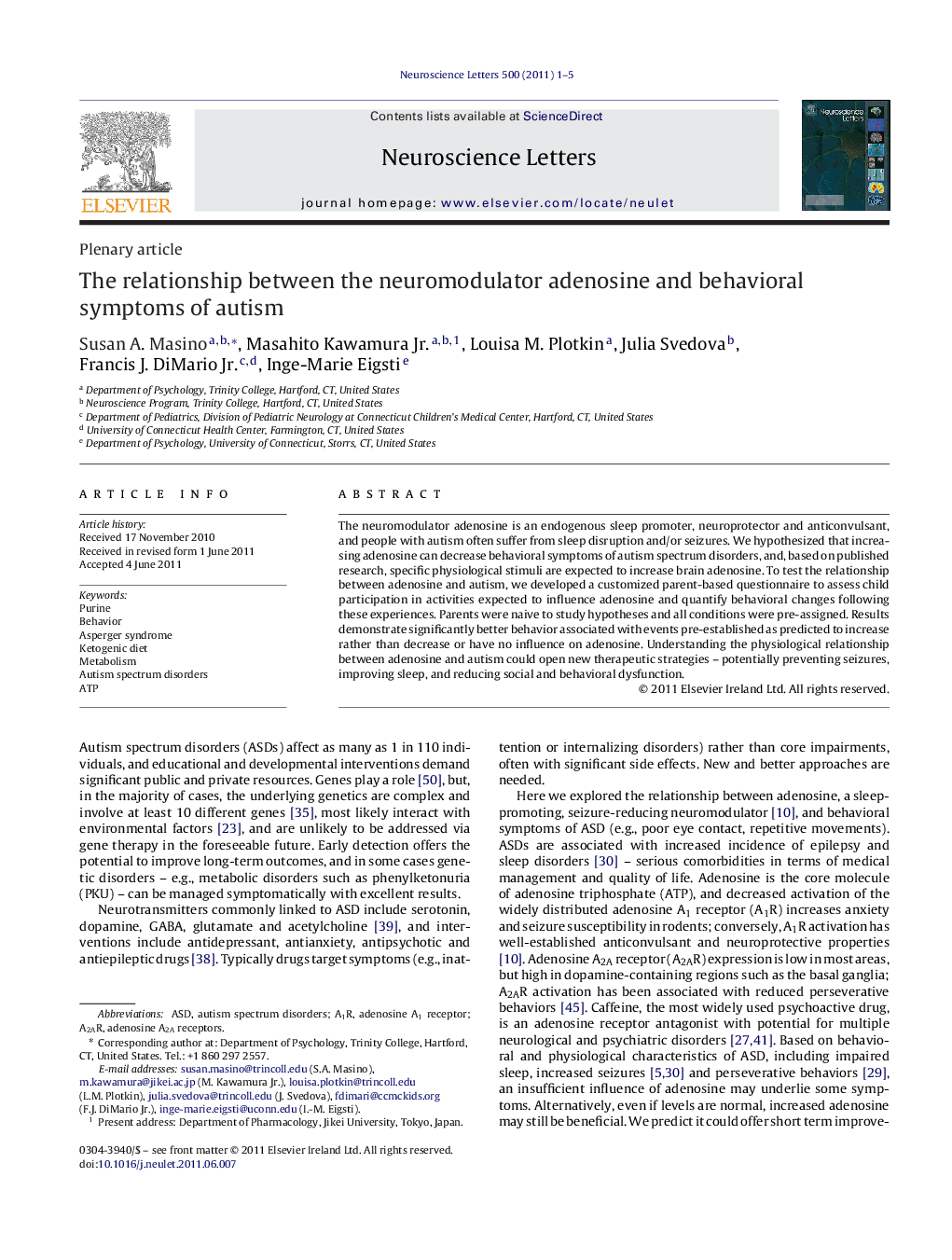| Article ID | Journal | Published Year | Pages | File Type |
|---|---|---|---|---|
| 4344934 | Neuroscience Letters | 2011 | 5 Pages |
The neuromodulator adenosine is an endogenous sleep promoter, neuroprotector and anticonvulsant, and people with autism often suffer from sleep disruption and/or seizures. We hypothesized that increasing adenosine can decrease behavioral symptoms of autism spectrum disorders, and, based on published research, specific physiological stimuli are expected to increase brain adenosine. To test the relationship between adenosine and autism, we developed a customized parent-based questionnaire to assess child participation in activities expected to influence adenosine and quantify behavioral changes following these experiences. Parents were naive to study hypotheses and all conditions were pre-assigned. Results demonstrate significantly better behavior associated with events pre-established as predicted to increase rather than decrease or have no influence on adenosine. Understanding the physiological relationship between adenosine and autism could open new therapeutic strategies – potentially preventing seizures, improving sleep, and reducing social and behavioral dysfunction.
► Stimuli predicted to increase adenosine reduce symptoms of autism. ► Reduced symptoms of autism were found regardless of gender or age. ► Understanding the interplay between adenosine and autism can yield new therapies.
